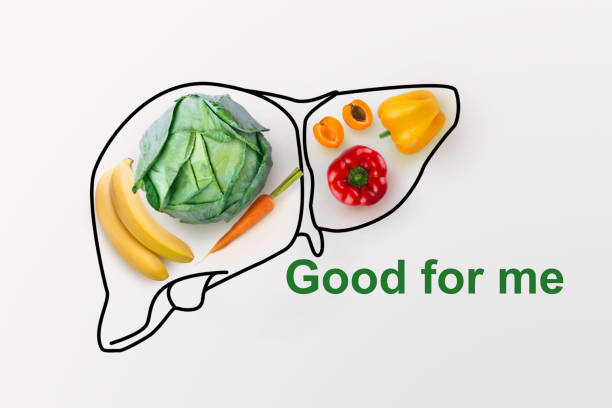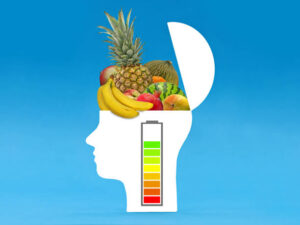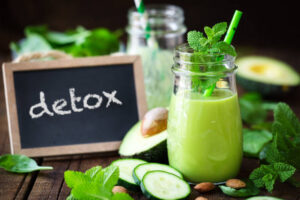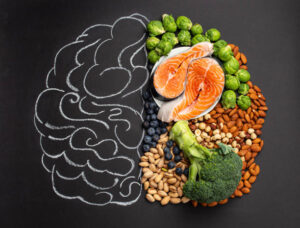Have you ever had one of those days where your stomach feels off—bloated, uncomfortable, or just sluggish? It’s no surprise that gut health has become a major talking point. Your gut, home to trillions of bacteria and other microorganisms, plays a huge role in how you feel. These microbes do everything from breaking down food to supporting your immune system. But here’s the thing: what you eat directly affects the balance of those microbes, and that’s where a vegan diet for gut health comes in.
If you’re between 20 and 55 years old, juggling work, family, or an active lifestyle, you might not always think about gut health until it’s out of whack. Let me tell you, it’s a lot easier to maintain a healthy gut than to fix an unhappy one. I’ve been on both sides of the coin—struggling with digestion before switching to a vegan diet for gut health, and now thriving with a gut that thanks me every day.
So, let’s break down how a plant-based lifestyle can dramatically improve your gut health and, in turn, transform how you feel every day.
What Is Gut Health and Why Should You Care?
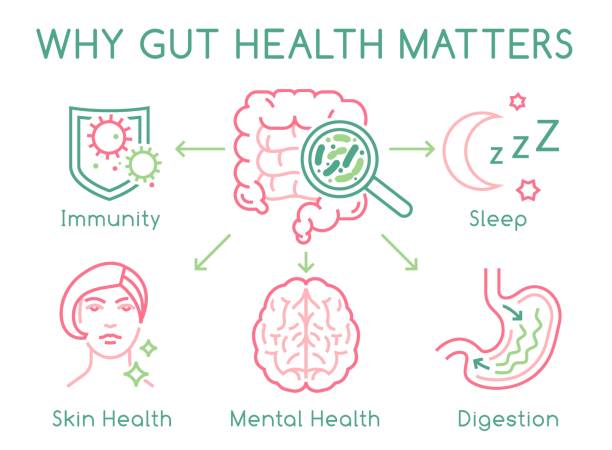
The Gut Microbiome: Your Inner Ecosystem
The term “gut health” refers to the state of your digestive system, particularly your gut microbiome—the community of bacteria, fungi, and other microorganisms living in your intestines. These little organisms aren’t just hitching a ride; they’re busy breaking down food, producing essential vitamins, and fighting harmful bacteria. Think of them as your body’s secret defense team.
But like any community, balance is key. When your gut microbiome is thriving, it helps keep digestion smooth and inflammation at bay. When it’s out of balance—due to poor diet, stress, or illness—you can experience bloating, irregular bowel movements, and even more serious issues like leaky gut or inflammatory conditions. Adopting a vegan diet for gut health can help address these concerns.
How a Vegan Diet Supports Gut Health
Plant-based foods are rich in the nutrients that your gut loves. Fiber, for instance, is a game changer. Most of us don’t get enough, but it’s the fuel your gut bacteria need to thrive. By focusing on whole foods like vegetables, fruits, grains, and legumes, you’re giving your gut the diversity of nutrients it needs to maintain a healthy microbiome.
I’ll be honest—I wasn’t always a fiber enthusiast. I grew up thinking a salad was something you ate out of obligation, not enjoyment. But when I added more variety to my meals, I noticed my digestion improved, my energy levels stabilized, and even my skin cleared up. It was a reminder that what we put into our bodies does matter. Despite the common myths about veganism, following a vegan diet for gut health can directly support the complex system of microorganisms that keep your digestive system in check.
The Key Nutrients in a Vegan Diet That Boost Gut Health
Fiber: Your Gut’s Favorite Fuel
Fiber is the number one nutrient you should focus on for gut health. Unlike fats, proteins, and carbs, fiber isn’t digested by the body. Instead, it passes through to your intestines, where it’s broken down by gut bacteria. This process produces short-chain fatty acids, which help maintain the lining of your gut and reduce inflammation.
There are two types of fiber: soluble and insoluble. Soluble fiber dissolves in water and forms a gel-like substance that helps slow digestion, keeping you fuller for longer and stabilizing blood sugar levels. You’ll find it in oats, chia seeds, and beans. Insoluble fiber, found in whole grains, broccoli, and carrots, adds bulk to stool and keeps things moving smoothly through your digestive tract.
Prebiotics and Probiotics: The Dynamic Duo
Prebiotics are types of fiber that feed the good bacteria in your gut. Probiotics, on the other hand, are live bacteria found in fermented foods that add to the population of healthy microbes. Together, they work to ensure your gut flora stays balanced.
As a vegan, there are plenty of ways to get both. Prebiotic-rich foods like onions, garlic, asparagus, and bananas are easy to incorporate into meals. For probiotics, you can turn to fermented favorites like sauerkraut, kimchi, and kombucha. I love adding a spoonful of sauerkraut to my salads or sipping on a kombucha as an afternoon pick-me-up. These small habits make a big difference for gut health.
Polyphenols: Antioxidants with Gut Perks
Polyphenols are plant compounds that act as antioxidants, helping protect your cells from damage. But did you know they also play a role in gut health? When you eat polyphenol-rich foods—think berries, green tea, dark chocolate—your gut bacteria break them down, producing compounds that reduce inflammation and even improve your brain function.
When I started making my morning smoothie with blueberries, spinach, and green tea, I wasn’t just getting a nutrient boost—I was supporting my gut. It’s amazing how little tweaks like this can change how you feel throughout the day.
Best Vegan Foods for Gut Health
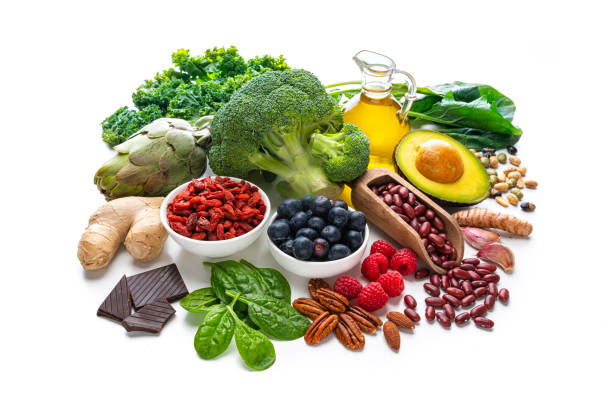
High-Fiber Vegetables
Vegetables are the backbone of any gut-friendly vegan diet. Leafy greens like spinach, kale, and Swiss chard are packed with fiber, vitamins, and minerals that promote digestion. Broccoli and Brussels sprouts are two other standouts—they contain a compound called sulforaphane that has been shown to protect the gut lining.
A trick I like to use is roasting a big batch of veggies at the start of the week. I toss them in olive oil, sprinkle sea salt, and pop them in the oven. Having them ready makes it easy to add a gut-boosting veggie to any meal.
Whole Grains and Legumes
Whole grains like quinoa, oats, and barley are excellent sources of both soluble and insoluble fiber. These grains not only keep your digestion on track but also feed the good bacteria in your gut. Legumes, including lentils, chickpeas, and black beans, provide prebiotics that nourish your microbiome.
I used to be intimidated by cooking beans from scratch, but I’ve since learned it’s pretty simple. Soak them overnight, toss them in a pot with some spices, and let them simmer. It’s cheaper than canned beans, and they taste so much better.
Fermented Foods
Fermented foods introduce beneficial probiotics to your gut. While most people associate fermented foods with dairy products like yogurt, there are plenty of vegan options. Tempeh, made from fermented soybeans, is a great protein-rich addition to stir-fries. Sauerkraut and kimchi offer a tangy punch to salads or grain bowls, while kombucha provides a refreshing, probiotic-packed drink option.
Nuts, Seeds, and Omega-3 Fatty Acids
Omega-3 fatty acids reduce inflammation, and a healthy gut often means less inflammation. While most omega-3s are found in fish, plant-based sources include flaxseeds, chia seeds, and walnuts. A tablespoon of ground flaxseeds added to your morning oatmeal or smoothie can provide a healthy dose of omega-3s.
I also love making chia pudding for breakfast. It’s so easy: mix chia seeds with almond milk, let it sit overnight, and top it with fresh fruit in the morning. It’s filling, packed with fiber, and gut-friendly.
Common Pitfalls to Avoid in a Vegan Gut Health Diet
Overconsumption of Processed Vegan Foods
It’s easy to fall into the trap of relying on processed vegan options like meat substitutes, vegan cheese, and snack bars. While these foods are convenient, they often lack fiber and can be high in sodium, sugars, and unhealthy fats, which disbalances your gut.
When I first switched to veganism, I went overboard on convenience foods. It wasn’t until I shifted focus to whole foods that I truly started to feel the health benefits. Aim for balance—processed vegan treats are fine in moderation, but make whole, plant-based foods the cornerstone of your diet.
Too Little Fiber, Too Fast
If you’re new to a high-fiber diet, you might be eager to dive right in. However, increasing your fiber intake too quickly can lead to bloating, gas, and digestive discomfort. Trust me, I learned this the hard way after going on a bean binge one week. The key is to slowly increase your fiber intake, allowing your body time to adjust.
Start by incorporating more fruits, vegetables, and whole grains into your protein-rich vegan meals over a couple of weeks, and drink plenty of water to help your system process the extra fiber.
How to Build a Vegan Gut Health Meal Plan
Sample One-Week Vegan Gut Health Meal Plan
Planning meals can help you stay on track with your gut health goals. Here’s a sample week of meals to give you an idea of how easy it can be to focus on gut-friendly foods.
· Day 1:
- Breakfast: Overnight oats with chia seeds, almond milk, and berries
- Lunch: Quinoa salad with chickpeas, cucumbers, and tahini dressing
- Dinner: Stir-fried tofu with broccoli and brown rice
· Day 2:
- Breakfast: Smoothie with spinach, banana, and flaxseeds
- Lunch: Lentil soup with whole-grain bread
- Dinner: Zucchini noodles with marinara sauce and sautéed mushrooms
· Day 3:
- Breakfast: Whole-grain toast with avocado and pumpkin seeds
- Lunch: Brown rice bowl with black beans, salsa, and guacamole
- Dinner: Stuffed bell peppers with quinoa, corn, and spices
· Day 4:
- Breakfast: Chia pudding topped with kiwi and walnuts
- Lunch: Buddha bowl with roasted sweet potatoes, kale, and tahini dressing
- Dinner: Vegan curry with lentils, spinach, and coconut milk
· Day 5:
- Breakfast: Smoothie bowl with mixed berries and hemp seeds
- Lunch: Hummus wrap with mixed greens, carrots, and cucumber
- Dinner: Vegan chili with kidney beans and cornbread
· Day 6:
- Breakfast: Oatmeal with almond butter and banana
- Lunch: Falafel salad with tahini dressing
- Dinner: Stir-fried tempeh with mixed veggies and soba noodles
· Day 7:
- Breakfast: Fruit salad with nuts and seeds
- Lunch: Vegetable sushi rolls with avocado and cucumber
- Dinner: Vegan tacos with lentils, cabbage slaw, and salsa
Tips for Success on a Vegan Diet for Gut Health
- Stay Hydrated: Drinking enough water is crucial for digestion. Aim for at least eight glasses daily to help fiber do its job.
- Mindful Eating: Slow down and savor your food. Mindful eating can help prevent overeating and allow you to tune into your body’s hunger cues.
- Experiment with Herbs and Spices: Incorporate gut-friendly herbs and spices like ginger, turmeric, and cinnamon into your meals. They not only add flavor but can also aid digestion.
- Listen to Your Body: Everyone’s gut is different. Pay attention to how certain foods make you feel and adjust your diet accordingly.
Meal Prep Tips for Gut Health
Meal prep can be your best friend when trying to eat for gut health. I always start by making a big batch of grains, roasting some veggies, and prepping a few jars of overnight oats or chia pudding. Having healthy options means I’m less likely to reach for processed foods.
Supplements: Do You Need Them?
While most of your gut health needs can be met through whole foods, some people benefit from adding a vegan probiotic supplement. It’s best to consult with a healthcare professional before starting any new supplement. I like to rely on foods like kombucha and tempeh to meet my probiotic needs but take supplements during particularly stressful periods when I feel my gut needs extra support.
The Long-Term Benefits of a Vegan Diet for Gut Health
Sustained Gut Health
The beauty of a vegan diet is that, over time, it doesn’t just improve your gut health; it helps maintain it. Various fiber, prebiotics, and probiotics from plant-based foods support a healthy microbiome, prevent digestive issues, and boost overall well-being.
Overall Health Improvements
Better gut health isn’t just about fewer digestive woes. When your gut is happy, everything else seems to fall into place. I’ve noticed clearer skin, fewer colds, and a more consistent energy level since focusing on gut-friendly vegan foods.
Preventing Chronic Diseases
A well-balanced gut can help reduce the risk of chronic diseases like heart disease, diabetes, and certain cancers. That’s because a healthy gut supports your immune system, as 70% of immune cells are located in your gut, and helps regulate inflammation in the body.
Conclusion
Adopting a vegan diet for gut health can improve your overall well-being. By prioritizing whole, plant-based foods rich in fiber, prebiotics, probiotics, and essential nutrients, you’re not just fueling your body; you’re nurturing a thriving gut microbiome. Whether you’re experiencing digestive discomfort or simply want to enhance your health, transitioning to a vegan diet for gut health can provide the support your body needs.
So why wait? Start experimenting with these gut-friendly foods today, and enjoy the journey to a happier, healthier gut.

